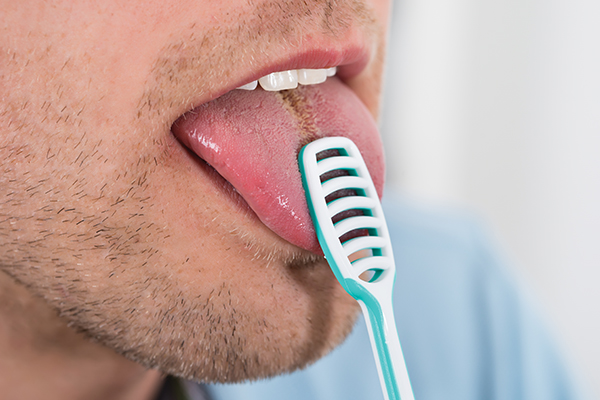Halitosis is not just about being sociable
by Donalee Moulton
When our breath is bad, your mouth is trying to tell you something. It’s important to listen—and to take steps to address the problem.
“Bad breath can indicate the presence of gum disease, cavities, oral infections, or stones that can build up in the tonsils,” notes Dr. Matthew Moore, a dentist in Fredericton, NB.
If your dentist has ruled out oral health causes and you brush and floss every day, he adds, your bad breath could be the result of another health problem, such as a sinus condition, gastric reflux, diabetes, liver or kidney disease. “In this case, you should see your healthcare provider.”
Bad breath is also a social issue. “[It] can be embarrassing and, in some cases, may even cause anxiety,” says Dr. Moore. “It is estimated that 25 per cent of the population are affected by bad breath.”
The most common cause of bad breath, also called halitosis, is poor oral hygiene. Our mouth is home to hundreds of types of bacteria. When we eat, these bacteria feed on the food left in our mouth and produce sulfur compounds as waste product. “These sulfur compounds are what cause bad breath,” says Dr. Moore. “The longer you wait after you eat to remove these bacteria, the more likely you will have bad breath.”
Another common cause of bad breath is dry mouth, which can be caused by medications, salivary gland problems, certain health conditions such as respiratory tract infections, or simply by breathing through the mouth. Saliva is important because it helps to clean the mouth, says Dr. Moore. “If you don’t have enough saliva, then your mouth isn’t being cleaned as much as it should be.”
The foods we eat can also contribute. Among those foods most commonly associated with bad breath are garlic, onions, spicy dishes, and coffee. “What you eat affects the air you exhale,” explains Dr. Moore. “After you digest these foods, they enter your bloodstream, are carried to your lungs and affect your breath.”
As well, smoking and tobacco use can also cause bad breath, and they also increase the risk for gum disease.

Photo credit: Bigstock/AndreyPopov
Fortunately, the problem can be addressed. To reduce the likelihood of bad breath, you should clean your mouth after eating by brushing, flossing, and rinsing. Brushing and flossing are both important to removing the bacteria that cause bad breath. Brushing alone only cleans about 60 per cent of the surfaces of the teeth; flossing will take care of the hard-to-reach areas between the teeth, notes Dr. Moore.
It’s especially important to brush your tongue, he adds, especially the back of the tongue where odor-producing bacteria tend to hide out and accumulate. “If you stick out your tongue, you may see a white or brown coating at the back. This is what you want to regularly remove, and a tongue scraper can be very helpful for this.”
Staying hydrated is also important to keep your mouth moist. Sipping water regularly helps with this.
There are also other steps you can take to help reduce bad breath. These include using an alcohol-free mouthwash every day. Chewing sugar-free gum and eating sugar-free candies can help to mask odors as well.
Avoid chewing gum or sucking candies that contain sugar, cautions Dr. Moore. “Having these high-sugar items in the mouth consistently provides a sugar bath of sorts for the teeth, which greatly increases your chances of having cavities.
“It is also a bad idea to continuously sip sugared drinks to mask bad breath for the same reason,” he adds. “If your goal is to keep the mouth hydrated, sip water only.”

